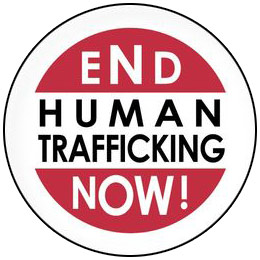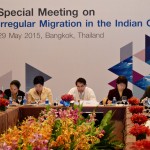
Ministry of Foreign Affairs: Press Release on 12 May 2015, The Royal Thai Government is organizing the Special Meeting on Irregular Migration in the Indian Ocean on 29 May 2015 in Bangkok. The Special Meeting is an urgent call for the region to comprehensively work together to address the unprecedented increase of irregular migration across the Bay of Bengal in recent years.
The increasing complexity of the problem demands a multi-faceted approach. Countries of origin, transit, and destination must work together to address the problem comprehensively by addressing the root causes as well as all the contributing factors along the way. Thailand is firmly committed to this cooperative and coordinated approach, and the upcoming ratification of the ASEAN Convention Against Trafficking in Persons, Especially Women and Children (ACTIP) to be signed at the 27th ASEAN Summit in Kuala Lumpur in November 2015, and the ASEAN Plan of Action (APA), will serve as a testament of our commitment to this cause.
The one-day meeting, to be attended by senior officials from 15 affected countries, including Australia, Indonesia, Malaysia, Cambodia, Laos, Myanmar, Vietnam, Bangladesh – and the U.S., among others, as observers, as well as relevant international organizations: UNHCR, IOM, and UNODC, will build on the progress of the Bali Process on People Smuggling, Trafficking in Persons and Related Transnational Crime. It will also follow up on the existing work done on this issue, particularly the Special Ministerial Conference on Irregular Movement of Persons held in Jakarta in 2013.
The meeting, which will be opened by Deputy Prime Minister and Minister of Foreign Affairs and chaired by Mr. Norachit Sinhaseni, Permanent Secretary for Foreign Affairs, will provide a forum for exchanges of information and intelligence on the current situation on irregular migration by sea and its challenges, as well as to demonstrate their strong commitment to strengthen cooperation and foster more concrete actions. Such actions may include, inter alia, cooperation on information and intelligence sharing as well as coordination in law enforcement to dismantle transnational criminal networks, and collective information campaign at countries of origin, transit, and destination to promote awareness and prevent exploitations.


